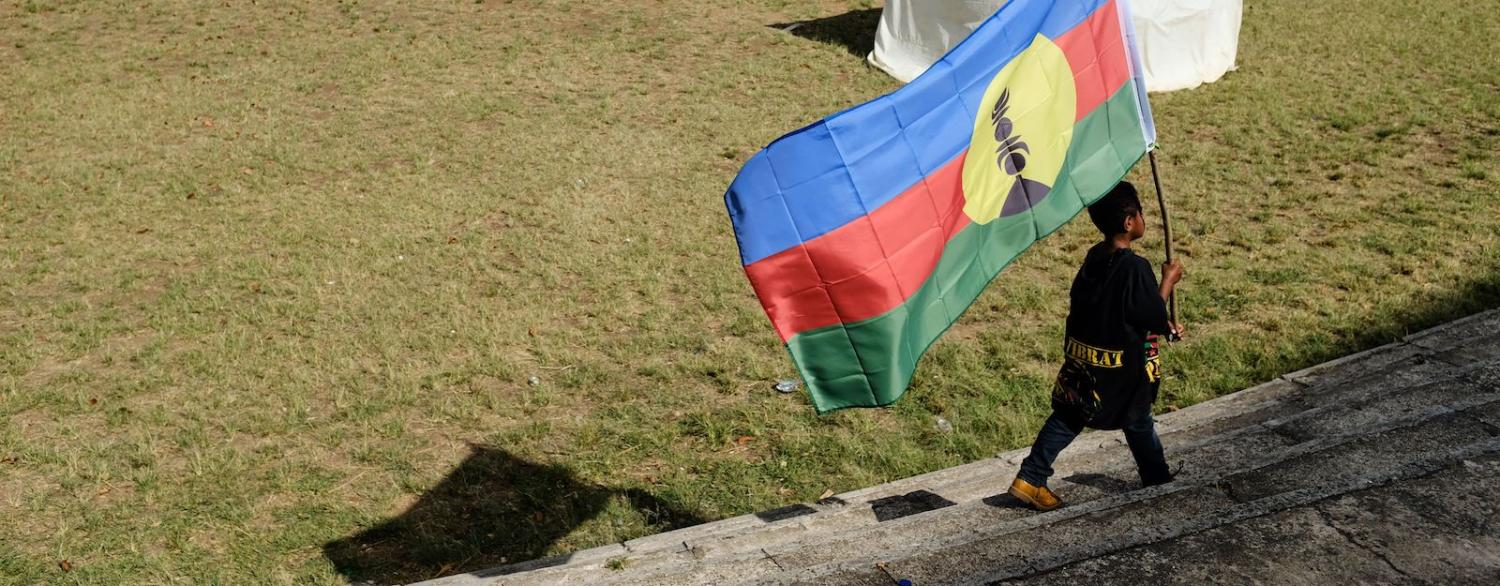The victory is clear, but certainly not as wide as the loyalists had hoped for.
On Sunday, the people of New Caledonia voted for their territory to stay part of France. To the question: “Do you want New Caledonia to gain full sovereignty and become independent?”, 56.4% (78,361 votes) voted “Non”, against 43.6% (60,573 votes) in favour of independence.
The result, closer than expected, opens the door to two new referendums. It is expected that both sides will continue campaigning.
The referendum was the result of a process that started 30 years ago, with the signing between pro- and anti-independence forces of the Matignon Accords (1988) and Noumea Accords (1998). These peace agreements ended years of violence based on a distinct ethnic divide.
Beyond the fact that New Caledonia remains a part of France (at least for now), the major lesson of this poll is the historical participation of the New Caledonian population: 80.6% of registered voters took part in the process, perhaps the largest participation in any vote in New Caledonia's history. France doesn’t have a compulsory voting system, and with some pro-independence parties boycotting the vote, this turnout is very welcome.
The result of this election nonetheless highlights the deep political and social divides that fracture the French territory, 17,000 km away from Paris and 2,000 from Australia. In the south, home to New Caledonia's capital, Noumea, the “Non” vote collected 73.7% of votes. The southern province is where most of the population and wealth is concentrated but is marked by inequality. On the other hand, the “Oui” vote was largely spread in the north (75.8%) and Loyalty Islands (82.2%).

For pro-independence supporters, the result of Sunday’s vote is a very good outcome and gives them a strong argument to continue the fight. Indeed, under the Noumea Accord, France agreed to offer New Caledonia three opportunities to say “Oui” to independence, with two more referenda due in 2020 and 2022.
On the loyalist side, despite the victory of “Non”, the reaction was more mixed. Previous polls were projecting a large victory – up to 70% – for the “Non” vote. With such a majority, anti-independence parties had hoped to force the separatists to abandon the second and third referenda and to convince the state to support them in this process. These aspirations are now less realistic.
The “Non” victory is a bittersweet one for the loyalists. After the vote, Emmanuel Macron hailed this result as “a mark of confidence in the Republic” and expressed his “pride that the majority of Caledonians have chosen France.” It is the first time that a French President has expressed their personal views on the process. Macron added that "the only winner is the peace process that has brought New Caledonia for thirty years, it is the spirit of dialogue." Indeed, an 80.6% turnout gives legitimacy to the referendum process. The President then invited “everyone to look to the future … There is no other way than dialogue”, he said.
Following the statement, French Prime Minister Edouard Philippe landed in Noumea to meet the leaders of the main political forces and begin a post-referendum discussion process.
So, what’s next?
By rejecting independence, New Caledonia remains a French territory, with Paris continuing to hold the sovereign powers (defence, foreign affairs, currency, justice, and public order) of New Caledonia. But the result, closer than expected, opens the door to two new referenda. As such, it is expected that both sides will continue campaigning, while the French government maintains its neutral position.
In addition, the process will also inevitably include the continuation of decolonisation efforts which began 30 years ago. Today, social inequalities remain considerable and the indigenous Kanak population face significant challenges: higher unemployment, delinquency, and school dropouts, to name a few. How both sides of this campaign will be able to unite to close the gap between the Caldoches and Kanaks – regardless of the referendum outcome – remains to be seen.
The New Caledonian deputy Philippe Gomès, who opposed independence, estimated that it will be necessary to take advantage of this referendum to “Build a new political organization which preserves the possibility of exercising the right to the self-determination …[to find a] satisfactory compromise for both sides.”
The vote on Sunday marks a victory for democratic mobilisation and legitimises a referendum process painfully started 30 years ago. It also opens a new phase of dialogue to answer the aspirations that have been strongly expressed in favour of the Kanak identity.

